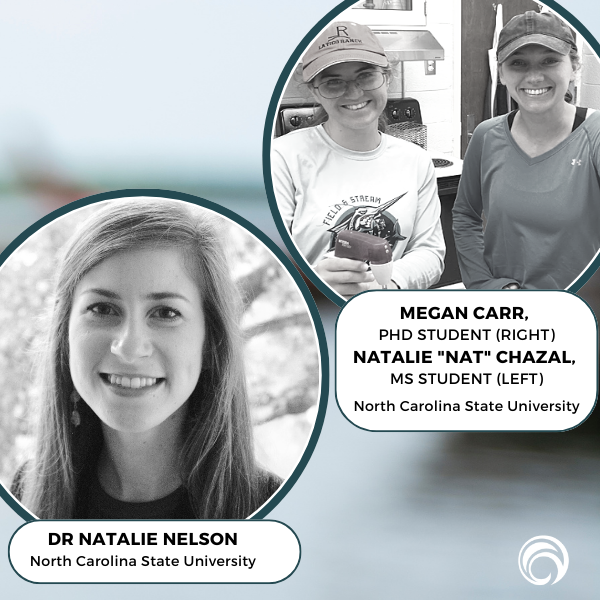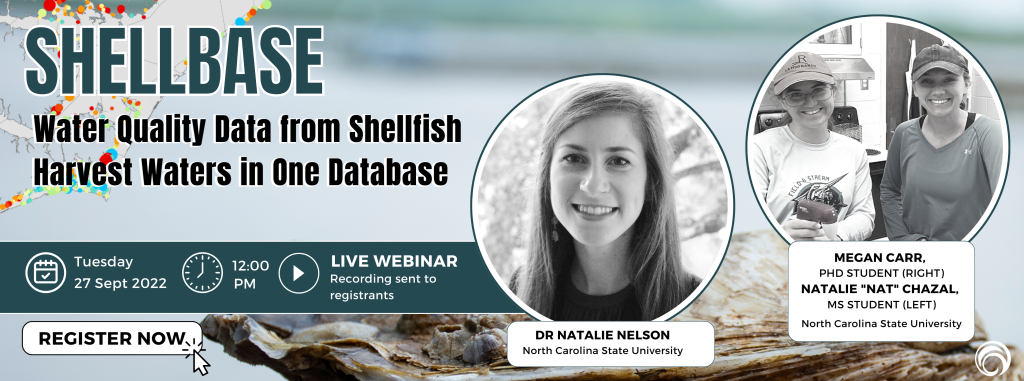
Join SECOORA for a webinar on September 27 at 12:00 PM ET presented by Natalie Nelson, Megan Carr, and Natalie “Nat” Chazal from North Carolina State University. They will be presenting use cases for a database, ShellBase, that compiles long-term records of coastal water quality from shellfish harvest waters in the Southeast.
Abstract
Few long-term monitoring programs with nationally coordinated practices are in place for tracking water quality changes across U.S. coastal waterbodies. In states where shellfish are harvested, regulatory offices collect fecal indicator bacteria concentrations along with additional water quality measurements from coastal waterbodies to understand in which waterways shellfish can safely be harvested for human consumption. Many states have collected these data for decades, creating impressive long-term records of coastal water quality that can potentially fill gaps in existing water quality monitoring programs.
A recent SECOORA-funded project provided resources to compile water quality data collected by regulatory offices from shellfish harvest waters into a unified database called “ShellBase“. In this talk, presenters will outline how ShellBase is organized, and present two case studies demonstrating how ShellBase data can be used to produce management-relevant insights and tools.
About the Presenters
Natalie Nelson is an Assistant Professor in Biological and Agricultural Engineering at North Carolina State University. Her research team takes a data-intensive and management-focused approach to the study of environmental system dynamics, with most of her projects focusing on water quality in estuarine and fresh surface waters.
Megan Carr, PhD student, and Natalie “Nat” Chazal, MS student, will present some of their ongoing work in this talk. Megan is an alumna of the University of Florida, where she received a BS in Environmental Engineering. Nat is an alumna of NC State, where she received a BS in Zoology and Animal Science.
Related news
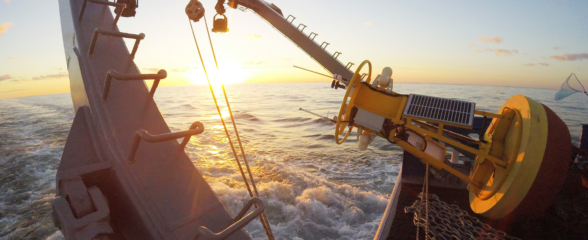
Funding Cuts to NOAA IOOS Will Hurt the Southeast
Proposed federal funding cuts would eliminate the IOOS Regional Observations budget for next year. Contrary to the budget Congress has already approved for this year, the Executive Branch wants these proposed cuts to go into effect in 2025.
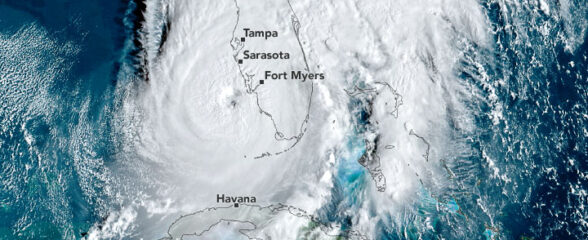
SECOORA Webinar on the Rapid Intensification of Hurricane Ian: Warm Subsurface Water on the Wide Continental Shelf
Join us Thursday, April 24th at 12 PM ET for the April installment of the SECOORA Coastal Observing in Your Community Webinar Series! This month, we will hear from Dr. Yonggang Liu from the University of South Florida. He will discuss his research on the rapid intensification of Hurricane Ian in relation to anomalously warm subsurface water on the wide...
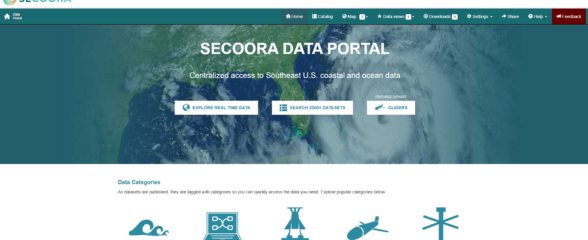
Webinar: SECOORA Data Portal Demo
Join us on Thursday, February 20, 2025 at 1:00 PM ET to learn more about the SECOORA Data Portal and how to navigate it. Axiom Data Science will be providing an overview of the portal, including how to search the Catalog and make a custom data view.
